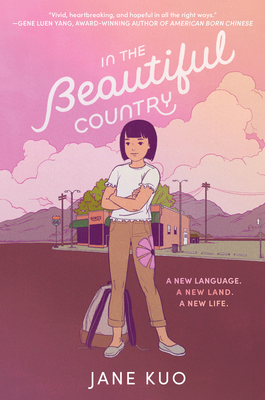At age ten, Zhang Ai Shi becomes an object sorting machine. Favoring the practical and the essential, her dolls and dress-up clothes go in the give-away pile as the family packs for Duarte, California, from Taipei, Taiwan. Because the Chinese name for America is “the beautiful country,” Ai Shi anticipates the trip with excitement.
However, what Ai Shi discovers “in the land of more” is that her world is rather small. As her parents endure vandalism and work relentlessly to make ends meet, Ai Shi must help out in “the store” while learning the paradox of being simultaneously grateful and sad. At school, she is bullied for having eyes of a different shape and lunches from a diverse culture. Laughed at, Ai Shi realizes that “laughter needs fuel to keep burning. It feeds on fear and shame” (60). When Ms. Branch asks the class of fifth graders, “Would you rather be invisible or have the gift of flight? Which is the better superpower?” (195), Ai Shi—who misses friendship and pretty things and who must hide the fact that she needs new shoes—chooses invisibility.
Using free verse to write her novel, In the Beautiful Country, Jane Kuo tells a tale about adapting, adjusting, and resilience. Eventually, Ai Shi comes to realize if she returns to Taiwan, she will miss her “kind teacher, the tree outside the classroom window that had become a reading companion, and the swing that gifted [her] with both flight and invisibility” (262). She also comes to accept her mother’s advice: “The secret to making friends is not to care so much about what other people think, and . . . the secret to getting people to like you is to like yourself” (265).
Another moral to Kuo’s story is how wishing to be funny and clever and cute or because we don’t know what to do with our own ocean of hurt, we often ridicule others. Ultimately, Ai Shi must navigate the knowledge she gains that enables her to get off the “never-ending merry-go-round of hurt and hate” (274).
- Posted by Donna

